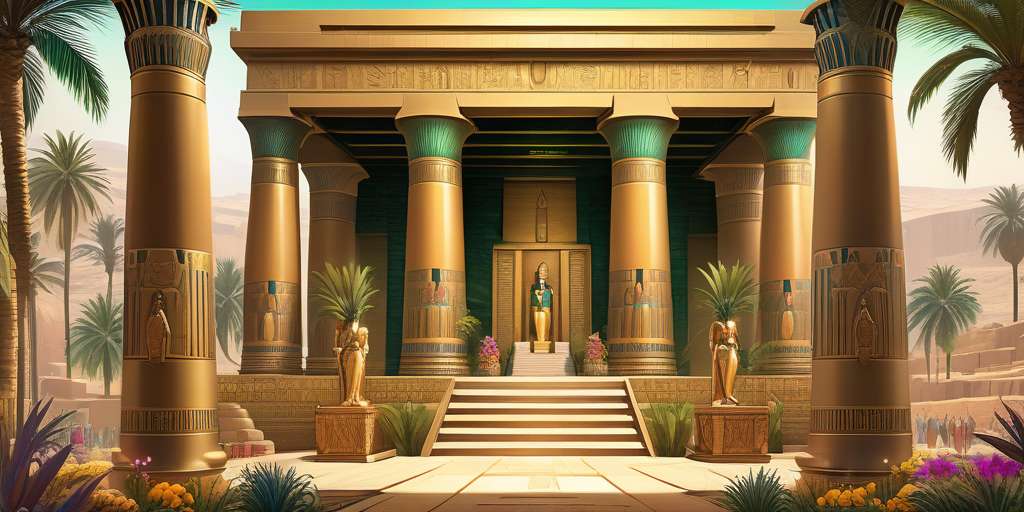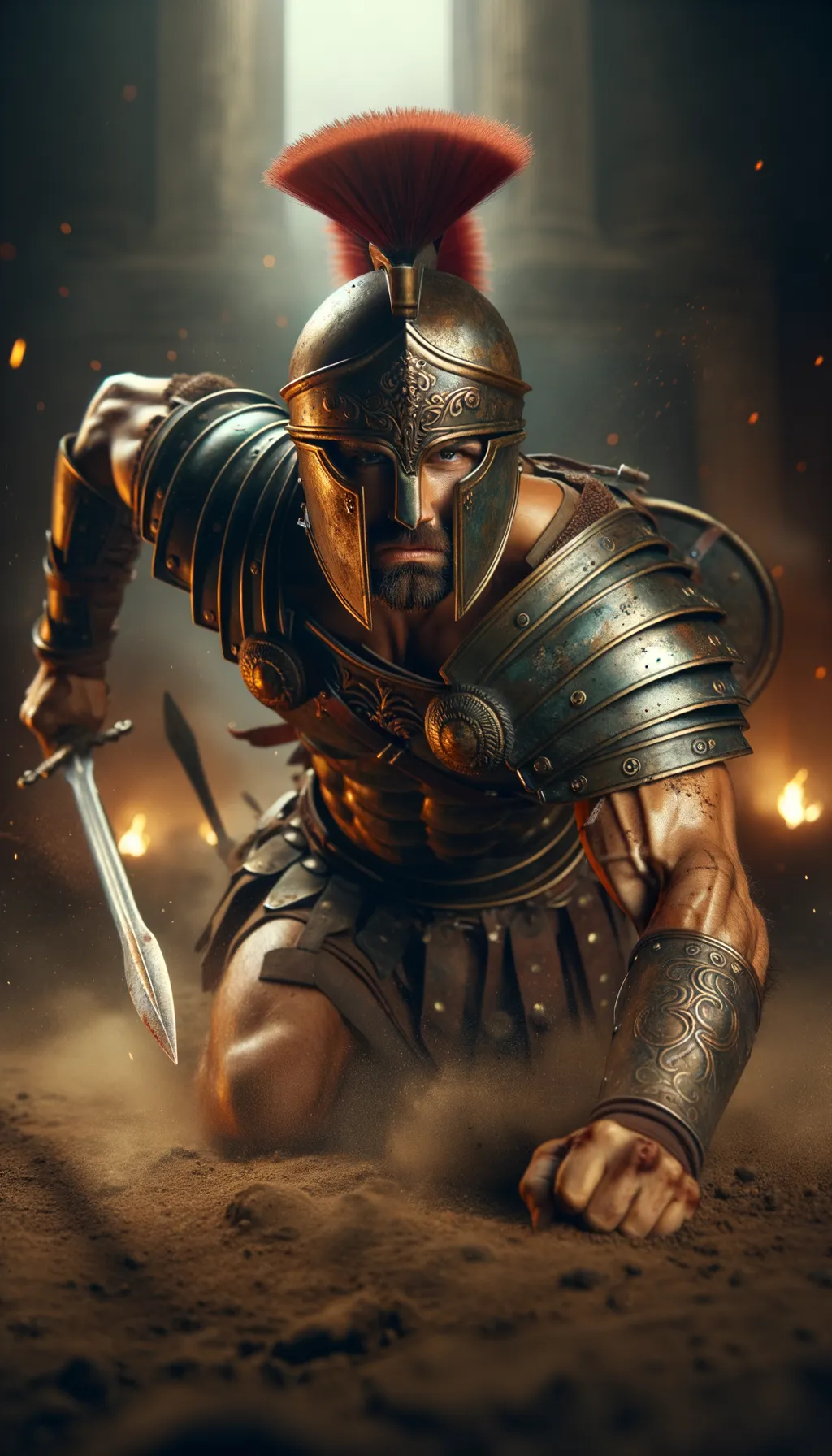Osiris, the most important god in Egyptian mythology, was noted for his role in the invention of agriculture and religion.
He was also known for his association with fertility and death and resurrection.
The city of Abydos became the center of the cult of Osiris, where festivities were held in his honor.
However, his fame went far beyond that.
His cult reached all corners of Egypt and soon spread to other civilizations as well.
The representations of Osiris showed a mummified appearance and bore royal attributes.
His legacy endured for centuries and his story continues to fascinate today.
Who was the god Osiris?
Osiris was the symbol of rebirth and judgment in the afterlife.
Originally from Egypt, Osiris was recognized for his beneficial and civilizing reign, until he was murdered by Seth, in an act of treason.
According to the version of the myth told by the Greek author Plutarch, Osiris was killed or drowned by his younger brother Seth, who tore the corpse into 14 pieces and threw them across Egypt.
Eventually, Isis and her sister Nephthys found and buried all the pieces except the penis, thus granting new life to Osiris, who thereafter remained in the underworld as ruler and judge.
His son Horus successfully fought against Seth, avenging Osiris and becoming the new king of Egypt.
Osiris is believed to have been a wise and just god.
His influence was not only limited to the practical aspects of life, but also encompassed the understanding of the afterlife.
Through his myth, Osiris represented the struggle between good and evil, and the possibility of attaining an eternal life.
Osiris, with his legacy of teachings and his personification of rebirth, became a mainstay in Egyptian culture and religion.
His history and attributes were deeply appreciated by the Egyptians, who honored him through festivals, rituals and religious practices in the many temples dedicated to the god.
Relationship of Osiris to agriculture and religion
Osiris was revered for his contribution to the invention of agriculture, a practice crucial to the livelihood of the Egyptians.
He was credited with teaching agriculture and introducing farming techniques, which made him a central figure in Egyptian agrarian society.
In addition to his impact on agriculture, Osiris also played a crucial role in religion.
He was considered the supreme god and was believed to preside over the judgment of souls in the afterlife.
This belief, along with the possibility of a righteous judgment guided by Osiris, provided comfort and hope to Egyptians in their transition to the afterlife.
Association of Osiris with fertility and resurrection
Another prominent aspect of Osiris is his association with fertility and resurrection.
Osiris was considered a god of fertility and his influence was believed to promote abundance and growth in crops, thus ensuring the prosperity of the Egyptian nation.
His connection to fertility also extended to the capacity for regeneration and rebirth in the cycle of life.
The cult of Osiris in the ancient city of Abydos
The New Year festivities in honor of Osiris in the ancient city of Abydos were one of the most important events in the Egyptian calendar.
During these festivities, various rituals were performed.
One of the most prominent traditions was the display of the head of Osiris as a sacred relic, which was revered by the faithful as a symbol of his divinity.
During the rituals, offerings and animal sacrifices were offered as a sign of devotion and gratitude.
Another of the most outstanding festivals of the cult of Osiris was the Festival of the Dyed Pillar.
During this event, a large pillar decorated with flowers and fruits was built in honor of Osiris.
This pillar symbolized the resurrection and rebirth of the god and was considered a physical manifestation of his divine presence.
The cult of Osiris in other parts of Egypt
Although Abydos was the main center of the cult of Osiris, the worship of this god extended throughout Egypt.
- The temples dedicated to Osiris also served as centers of learning and knowledge, where the priests transmitted the teachings and beliefs related to the god to future generations.
- The cult of Osiris was not limited to the Egyptians alone, as the Greek colonists and the Lagarid rulers also adopted his cult, creating religious syncretisms such as Osiris-Apis and Serapis, respectively.
- In addition, the Lagarid rulers introduced the cult of Osiris in Alexandria, where the figure of Serapis, another syncretic god combining features of Osiris and Greek deities, developed.
Serapis became a very popular god in Hellenistic and Roman Egypt, and his cult lasted until the 4th century AD. - The influence of Osiris also reached Rome and the Roman Empire, where both he and his wife Isis were worshipped.
His cult was maintained throughout the centuries and continued to exert a strong influence on the religion and culture of the time. - The importance of Osiris in Egyptian culture was manifested in the central role of Osiris as the supreme judge of the afterlife.
Representation and attributes of Osiris
Osiris, the Egyptian god associated with life, death and resurrection, was often depicted in mummified form, with green or black skin.
In addition to his characteristic appearance, Osiris carried with him symbols of royalty that reflected his importance and power in Egyptian mythology.
The gilded bronze statuette of the god
An impressive example of the depictions of Osiris is the gilded bronze statuette produced in 700 BC. This figure shows the god in his mummified appearance and is adorned with elaborate details.
The statuette reflects the artistic skill and richness of Egyptian culture at that time.
Principles and values associated with Osiris in Egyptian society
The cult of Osiris promoted elementary moral principles and values in Egyptian society.
- Justice: Osiris was considered the symbol of justice and people were expected to follow his teachings in order to be just in their actions and decisions.
- Generosity: Osiris also represented generosity, and the population was encouraged to be generous and compassionate to others, following the god’s example.
- Respect: The cult of Osiris encouraged respect for other human beings, as well as for nature and the world around us.
The legacy of Osiris in Egyptian culture
The influence of Osiris on the monarchy and the Pharaohs
Osiris played a crucial role in the conception of Egyptian kingship and monarchy.
He was considered the ideal model of the pharaoh, establishing important concepts that defined the role of the ruler.
The pharaoh was believed to be the direct descendant of Osiris and, like him, should be a just and benevolent leader.
Osiris personified the virtuous qualities expected of pharaohs.
His mythology provided an ethical basis for the monarchy and established the standards of behavior that the pharaohs were expected to follow.
Thus, Osiris was not only a revered god, but also a role model for the ruling elite.
Their legacy endured throughout the centuries, leaving an indelible mark on the history and culture of this ancient empire.
If you are a true Osiris fan, now you can show off your t-shirt: The Man, The Mith, The Legend.
Centuries go by, but the myth remains.
Subscribe
If you want to receive in your mailbox stories, curiosities and legends of the most fascinating creatures of classical mythology just fill in this form.
Continue reading
If you liked this article, you like mythology.
And in this case, we have much more to offer you.
Discover new adventures, heroes, nymphs, gods, battles, teachings…
Just click on the button.
mitologiaclasica.com is a website dedicated to explore and spread the fascinating richness of mythology, offering a vast compendium of stories, characters and legends.
Explore
Greek Mythology
Roman Mythology
Norse Mythology
Egyptian Mythology
Hindu Mythology
Chinese Mythology
Japanese Mythology
Celtic Mythology
Privacy Policy
Privacy Policy
Copyright mitologiaclasica.com


